A grocery store in Ngo Quyen district, Hai Phong has a sign saying "no bank transfers accepted"
Her house is 20 km away from the shop, and she couldn't ask someone to pick it up for her, so Ms. Thanh struggled to find a way to pay. After some pleading, the shop owner gave her another person's account number to transfer the money, with the instruction that "the content must not contain the words 'buy', 'pay', or 'purchase'."
"I've been used to paying for everything by bank transfer for three years now, so when the restaurant suddenly asked for cash, I was very confused," said Ms. Thanh. Not only the chicken rice restaurant, she noticed that some grocery stores, vegetable stalls, and coffee shops near her house also stopped accepting bank transfers and QR codes disappeared.
On the morning of June 1, Ms. Le Giang was in a miserable situation because she searched everywhere but could not find 120,000 VND to pay for two bowls of pho in the middle of Ha Long City ( Quang Ninh ). The restaurant owner said that since the beginning of June, they had not accepted money transfers. "At that time, I only had a phone, and I did not know where to find an ATM to withdraw money," she said.
The pho restaurant owner explained that the reason for the temporary suspension of the transfer was "concern about the new tax policy". When Ms. Giang suggested adjusting the selling price to compensate for this, they shook their heads: "If we increase the price, we will lose customers, and it will be difficult to explain".
Mr. Nguyen Thao, owner of a grocery store in Hai Phong, also stopped accepting money transfers since the beginning of June. This decision came from the information that "personal accounts with large transactions may be subject to a 1.5% tax on the total transaction amount".
Although there is no official document, Mr. Thao is still cautious because he is worried that the actual revenue is not high, if tax is imposed on the total transaction, he may lose money. "All transactions at my store are in cash, if customers want to transfer money, they will have to add a tax percentage, but who will pay for that?", Mr. Thao shared.
Many clothing, cosmetics, food, and grocery store owners in Hanoi , Quang Ninh, Hai Phong, and Nghe An have announced that they will stop accepting payments by bank transfer from June 1. Some larger businesses accept bank transfers but announce that they will add tax fees, or keep the price the same if customers pay in cash.
Many small retailers still allow money transfers but advise customers not to include the words "buy", "pay", or "deposit" in the transaction content. This situation has caused many consumers to panic and have to proactively withdraw cash to protect themselves.
The above reality is the common reaction of many business people to the change in the lump-sum tax policy from June 1. Accordingly, business households with revenue of over 1 billion VND per year in a number of industries (food and beverage, hotels, retail, passenger transport, beauty, entertainment...) must use electronic invoices via cash registers connected to the tax authority.
Accordingly, businesses must equip themselves with equipment, software and issue invoices for each sales transaction. On that basis, tax authorities will know the actual revenue. That is, the revenue of households and individuals doing business will be re-determined and may be adjusted, instead of the "fixed rate" applied before.
According to the General Statistics Office (Ministry of Finance), by the end of 2024, there will be 3.6 million business households nationwide that are under tax management, contributing VND25,953 billion to the budget. Of these, nearly two million households will apply the lump-sum tax method, averaging VND700,000 per month.
It is expected that about 37,000 households and business individuals currently paying taxes in the form of lump sums will have to change their form.
According to MSc. Nguyen Ngoc Tinh - Vice President of the Ho Chi Minh City Tax Consultants and Agents Association (HTCAA), and Deputy Director of DFK Vietnam Auditing Company Limited, the new tax regulations make many business households worried. They will have to spend more on equipment and software investment, while revenue and profit do not increase. Many households are also concerned about tax declaration, accounting and document preparation - which are complicated and time-consuming, while they do not have the capacity to do it themselves. This can reduce the actual profits of business households and individuals.
Tax authorities have also tightened control over sellers on e-commerce platforms. Many online sellers have not registered their businesses or declared taxes, so they are concerned that the tax authorities may collect and "trace" the cash flow of transactions through banks.
Recently, the Tax Department (Ministry of Finance) requested that those doing business on digital platforms who have not registered their business must urgently register, declare, and pay taxes fully and on time. Those who have not fulfilled their tax obligations will be fined, have their tax obligations collected, and more severely, their files will be transferred to competent authorities for investigation and handling of tax evasion according to regulations.
Mr. Nguyen Van Duoc, General Director of Trong Tin Tax Consulting Services Co., Ltd., commented that the seller's sudden refusal to accept the transfer creates inconvenience and negative psychology for the buyer, and they also limit their business opportunities in the current difficult economic context. This raises questions about the seller's compliance with the law. "The tax authority can completely target these sellers for tax inspection and handling to deter violations," Mr. Duoc said.
However, experts believe that it is time for small businesses in Vietnam to change their mindset about paying taxes. Mr. Dinh Hong Ky, Vice President of the Ho Chi Minh City Business Association (HUBA), pointed out that many business households have large revenues but always "avoid" by registering as individual business households to enjoy low lump-sum taxes. Most individual households "do not want to grow" or switch to paying taxes on actual revenues like businesses.
Many household business models, according to Mr. Ky, are often family-based, with the husband picking up the goods, the wife selling the goods, and the children taking care of accounting and simple tax filing. "Everything is wrapped up in a fixed monthly tax amount. This makes many people hesitant to convert to a business, because they think they will have to comply with too many complicated procedures, especially in tax filing and accounting," he said.
However, Mr. Ky said that this barrier is now being removed thanks to technology applications, accounting software and AI solutions widely deployed by tax authorities. "Business tax declaration according to regulations is no longer a major obstacle. Technology platforms have significantly simplified the process and compliance costs," he said.
Mr. Luong Huy Ha, Director of Lawkey Law Firm, also shared that business people need to change their mindset about paying taxes and consider it their responsibility. "Instead of focusing on dealing with policies and management agencies, business households and individuals should focus on development, creating more surplus to pay taxes fully," Mr. Ha shared.
Ms. Le Giang is also an online business owner of high-end products. While waiting for more specific information about tax calculation, she still accepts payment by bank transfer. "Not accepting bank transfer has a big impact, especially for large value orders that have to be collected COD (collect on delivery) in full, which can lead to declaration, insurance fees, and problems if the goods are lost," she said.
HA (according to VnE)
Source: https://baohaiduong.vn/nhieu-hang-quan-bat-ngo-khong-nhan-chuyen-khoan-413179.html


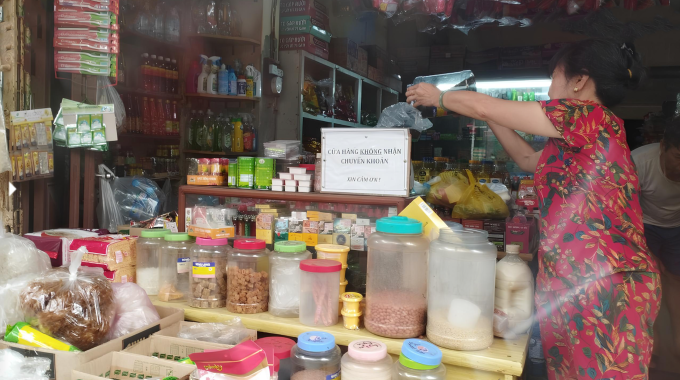








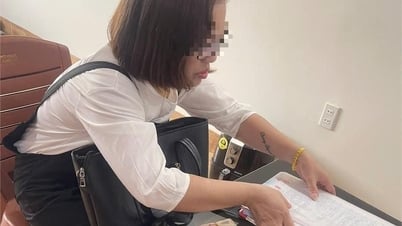























































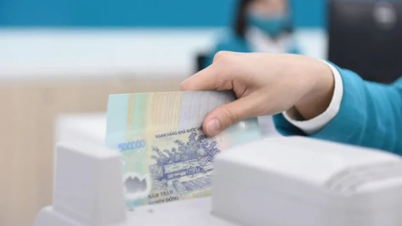


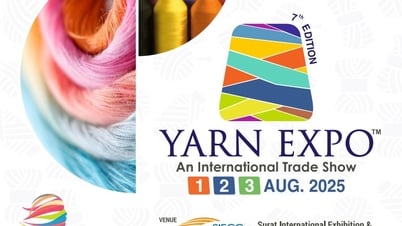









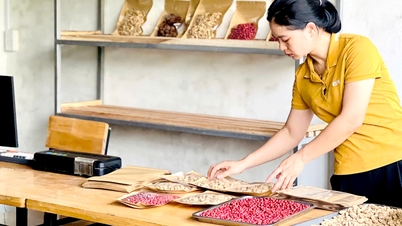











Comment (0)